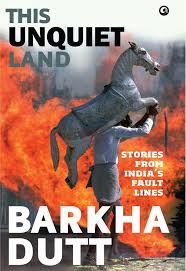Author James Levine
Country India
Genre Fiction
Publication Date 2009
Pages 205
For me, its very simple. A book that makes me cry stays very close to my heart. And not many books do that. But "The Blue Notebook" did exactly that: it broke my heart and made me literally cuddle up in my blanket and cry. And hence its no surprise that I absolutely loved the book and can't recommend it enough. The only disclaimer would be that it is not for the faint hearted. If you have the courage to face up to a reality unknown to you; then this book is for you!
This is the story of a 15 year old Indian girl, Batuk who is sold into prostitution and slavery by her father at the age of 9. Over time, she comes to terms with this reality, makes the most of it and finds solace in penning down her thoughts in the "blue notebook" . The book, hence, is portrayed as a collection of her writings. The horrific details especially of her being raped and molested make this a very hard but a very real read.
I have particularly enjoyed the language and the style of writing. The deep rooted connotations along with the intriguing language make this book stand apart. The story flows seamlessly between the past and the present and this is another style that particularly interests me. The book is narrated in the language of the 15 year old protagonist, Batuk and she is both dramatic and cynical while being very astute and perceptive in her observations.
To me personally, what is most stark and heart wrenching is that Batuk's father is the one who sells her into prostitution. The disappointment that she feels when he leaves her there for the first time; followed closely by the terror she experiences the first time she is fondled by an "Uncle" are the 2 instances in the book when the beauty and complexity of human emotions are at the peak. Having said that, the resilience of Batuk's spirit is a lesson to all of us. Her fear that she is losing her identity and her thoughts force her to put pen to paper and interestingly; this is what helps her survive.
Some of the quotes from the book that stand out for me are:
"As I observed the depth of my father's weakness, our gazes touched and from him I felt the kiss of inner death"
"Initially, making sweet cake was not something I tried to excel at. I viewed my baking as a means of survival"
"I am a simple baker of sweet cake"
In conclusion, this is one of the best books I have read in recent times and couldn't recommend it enough. The brilliance and the elegance with which the story is told make it hard to believe that this is the work of someone who is alien to the country and this life style. James has done a remarkable job and couldn't be commended enough!
As I leave this book and move on, what has stayed with me is a fundamental question on how a father could do this to his daughter? I try hard not to judge; but in this instance I can't help but do exactly that...








